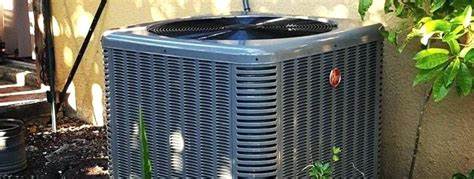
Heating and cooling expenses can comprise over half of your total utility expenses, according to Department of Energy reports.
That makes using central air part of the largest energy cost for a normal U.S. home.
With warmer weather condition simply around the corner, we have actually assembled a list of easy, no-cost ways to improve cooling effectiveness in your house to assist you get the most from your system while controlling your costs.
Reward Material: Download our "25 Ways to Save on Heating and Cooling" eBook totally free as a PDF. Quickly download and wait and referral anytime.
The list of tips listed below is a partial list drawn from our e-book "25 Ways to Save on Cooling And Heating." The eBook describes fantastic concepts for enhancing both heating up and cooling effectiveness-- a lot of are low- or no-cost measures you can take.
In this blog, however, we are highlighting the eight best, no-cost tips for a/c maintenance. These pointers can assist keep air conditioning systems healthy as the weather condition gets warmer and property owners will begin switching on their systems.
1. Clean around outside condenser unit. Your outside system will work most effectively if it is tidy and clear of debris. Click on this link to read our article about HEATING AND COOLING performance, that includes a video on how to properly clean your condenser. A more extensive, extensive cleaning must be performed by an expert.
2. Vacuum indoor vents and keep vents unblocked. You can vacuum dust and any debris far from indoor supply vents to help keep steady air flow from your system. Likewise, keep items like blinds, furniture and toys far from obstructing the vents.
3. Increase your thermostat by a few degrees. Normally, changing temperatures 5-- 8 degrees (down in winter season, up in summer) can conserve cash and energy. With a programmable thermostat, you can immediately change the temperature for different times of the day or throughout times you are going to be away from home for several hours.
4. Keep lights and other heat producing devices far from your thermostat. Having heat producing devices near your thermostat will tell it that the air in your home requires to be cooled more, causing the system to run longer and work harder than it might need to.
5. Keep drapes and blinds closed in the heat of the day. When direct sun hits the windows in your house, keeping your curtains or blinds closed can keep a few of the heat from warming the inside of your house.
6. Clear your drain line. There is a drain by the indoor cooling coil, usually installed above the
heater in the basement. If you flush one cup of chlorine bleach down your cooling drain and rinse it with a gallon of water, you can keep air conditioning maintenance - air-conditioning-edmonton.ca your drain clear through the summer. Keeping your
drain line clear can save http://query.nytimes.com/search/sitesearch/?action=click&contentCollection®ion=TopBar&WT.nav=searchWidget&module=SearchSubmit&pgtype=Homepage#/hvac your basement from handling water if the drain ends up being blocked.
7. Avoid using your dryer and oven in the most popular hours of the day. Running your dryer will cause warm air to be drawn into your home and using your oven will add additional warm air to your house, triggering your a/c to need to work more difficult.
8. Insulate any exposed ductwork. Make certain ductwork that goes through an unconditioned space is correctly sealed so it does not leak any of your conditioned air. You can fix visual leaks with a specialized duct-sealing tape that is UL 181-rated, but make sure an expert also examines the ductwork throughout your next set up upkeep visit. It's also advise that your ductwork be insulated utilizing the correct density duct insulating product.
You do not constantly need to invest a lot of money to maintain the financial investment you have actually made in your central air conditioning system.
Comprehending the different parts of your HEATING AND COOLING system and keeping it running effectively will keep your system in top working condition for when you need it most this summer season.
We advise using the handy pointers explained above along with regular upkeep to conserve money and decrease the possibility of a problem developing with your system.
The pointers above, together with the extra actions detailed in our "25 Ways to Conserve" ebook can guarantee your system is working well and all its parts are in good shape.
Be sure to have your system examined by an expert at least once each year to ensure the equipment, connections and ductwork are all prepared to go when the warm weather starts.